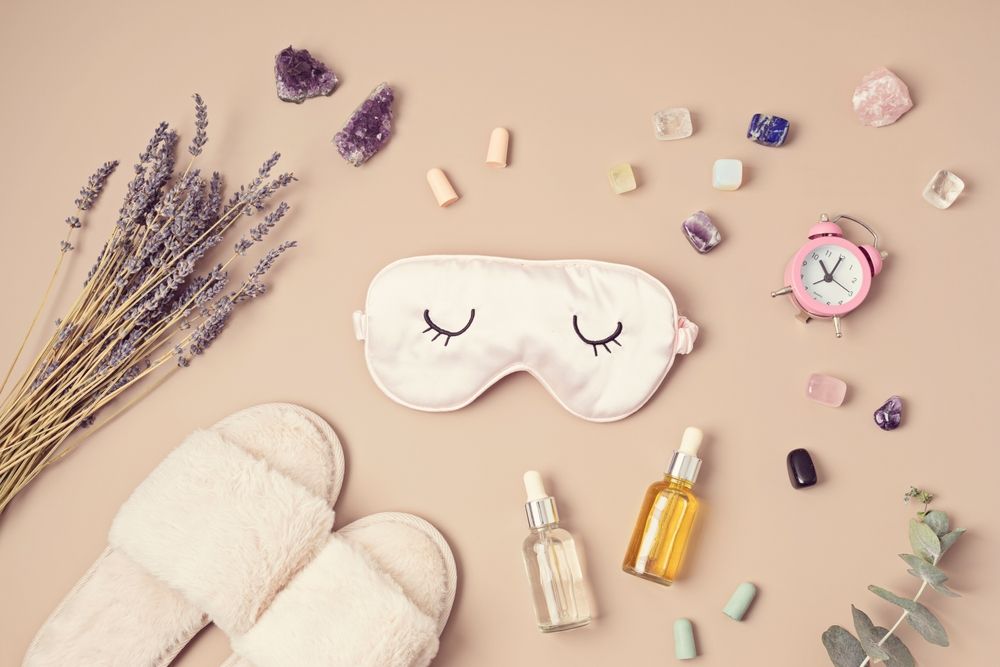Good sleep doesn’t have to come with a luxury price tag. While endless ads promote expensive mattresses, sleep trackers, and premium bedding, the truth is you can dramatically improve your sleep hygiene without overspending. Better rest comes from smart habits, a comfortable environment, and small, cost-effective adjustments that support your body’s natural rhythms. Here’s how to save money while building a healthier, more restful sleep routine.
Understand What Really Affects Sleep
Before spending money, it’s important to know what actually improves sleep quality. Many people assume they need costly gadgets, but the fundamentals are simple:
-
Consistency: Going to bed and waking up at the same time every day.
-
Environment: A dark, cool, quiet room.
-
Comfort: Supportive bedding and a clean sleeping area.
-
Lifestyle habits: Avoiding caffeine late in the day and limiting screen time at night.
Focusing on these core factors often improves sleep more than expensive products ever could.
Keep Your Bedroom Cool Without High Energy Bills
A cool room (around 60–67°F/15–19°C) promotes better sleep, but you don’t need to run the air conditioner all night.
-
Use a fan to circulate air instead of lowering the thermostat.
-
Open windows strategically to create cross-ventilation in cooler months.
-
Choose breathable bedding and moisture-wicking sheets to stay cool naturally.
-
Blackout curtains or thermal drapes keep heat out during the day, reducing AC use.
These affordable steps help you sleep comfortably while lowering energy costs.
Invest in Mattress Comfort the Smart Way
A new mattress can be pricey, but you can often improve comfort without replacing it.
-
Add a memory foam or latex mattress topper for extra support and softness.
-
Rotate your mattress regularly to extend its life.
-
Vacuum and clean it to remove allergens and dust.
-
Look for budget-friendly mattresses online with good reviews—many offer quality at a fraction of retail prices.
These options save hundreds compared to buying a brand-new luxury mattress.
Upgrade Bedding Without Overspending
Bedding doesn’t need to be high-end to improve sleep quality.
-
Shop discount stores or online sales for breathable cotton or bamboo sheets.
-
Choose high thread count wisely—comfort matters more than the number.
-
Add an extra pillow for support instead of buying specialty pillows.
-
Layer blankets to adjust temperature instead of buying heavy comforters for each season.
A few thoughtful upgrades make your bed cozy and sleep-friendly without draining your wallet.
Block Out Light on a Budget
Darkness helps your brain produce melatonin, the hormone that regulates sleep.
-
Use blackout curtains or affordable light-blocking window shades.
-
Hang a thick blanket over your window if you’re not ready to invest in curtains.
-
Wear an inexpensive sleep mask for a simple solution.
-
Cover or unplug glowing electronics like alarm clocks or chargers.
Keeping your room dark doesn’t have to cost much but can greatly improve your rest.
Reduce Noise Without Fancy Tech
Expensive sound machines aren’t the only way to drown out noise.
-
Use a free white noise app on your phone.
-
Turn on a fan for gentle background sound.
-
Wear affordable foam or silicone earplugs.
-
Rearrange furniture—placing bookshelves or rugs near walls can help dampen sound.
Noise control doesn’t require costly gadgets; small adjustments can create a quieter space.
Ditch Costly Sleep Supplements
Many supplements and sleep aids are heavily marketed but not always effective—or necessary.
-
Focus on good habits: limit caffeine, avoid heavy meals before bed, and wind down with relaxing activities.
-
Try herbal teas like chamomile or peppermint for a natural, affordable option.
-
Use relaxation techniques like deep breathing or meditation (many free apps are available).
Building healthy sleep habits is far cheaper and safer than relying on supplements or pills.
Stick to a Consistent Sleep Schedule
Stability is one of the most powerful, free tools for better sleep.
-
Set a regular bedtime and wake-up time—even on weekends.
-
Avoid staying up late and sleeping in, which disrupts your circadian rhythm.
-
Use your phone alarm or calendar reminders to keep your routine on track.
Consistency costs nothing but dramatically improves sleep quality.
Keep Your Bedroom Clutter-Free
A calm, organized space helps signal your brain that it’s time to rest.
-
Declutter surfaces like nightstands and dressers—no need for expensive organizers.
-
Use simple baskets or boxes to store bedtime essentials.
-
Keep laundry and work materials out of sight to reduce stress.
A tidy, peaceful room supports better rest without expensive décor or furniture.
Manage Screens Before Bed
Blue light from phones and tablets can delay sleep—but you don’t need costly blue-light-blocking gadgets.
-
Set a digital curfew: avoid screens an hour before bed.
-
Use built-in night mode or blue light filters on your devices.
-
Read a physical book or listen to calming audio instead.
Free or built-in features are usually enough to protect your sleep without buying specialized glasses or apps.
Use Affordable Aromatherapy
Scents like lavender can help with relaxation and sleep.
-
Buy a small bottle of essential oil and add a few drops to your pillow or diffuser.
-
Make a DIY pillow spray with water, essential oil, and a spray bottle.
-
Light a simple lavender-scented candle (but always extinguish before sleeping).
You don’t need expensive spa products to enjoy calming scents at bedtime.
Focus on Stress Management at No Cost
Stress and anxiety can ruin sleep, but many effective coping techniques are free.
-
Practice deep breathing or progressive muscle relaxation.
-
Journal before bed to clear your mind.
-
Try free meditation apps or guided sleep audios.
-
Create a calming evening routine with stretching or soft music.
Managing stress is one of the most affordable ways to improve sleep hygiene.
Common Mistakes to Avoid
-
Chasing expensive gadgets: Sleep trackers and smart beds aren’t necessary for good rest.
-
Overheating the room: Running AC too cold all night drives up energy bills.
-
Ignoring simple fixes: A cheap sleep mask or fan often works as well as pricey products.
-
Inconsistent sleep schedule: Oversleeping on weekends can undo your progress.
-
Using electronics until bedtime: Blue light and mental stimulation delay sleep.
Avoiding these mistakes saves both your sleep quality and your money.
You don’t need an expensive mattress, high-tech gadgets, or trendy supplements to improve your sleep hygiene. By focusing on simple, cost-effective strategies—like cooling your room naturally, using affordable blackout options, managing noise, and sticking to a consistent routine—you can get better rest without overspending. Small, thoughtful changes to your bedroom and daily habits can help you sleep deeper, wake up refreshed, and save money while doing it.





